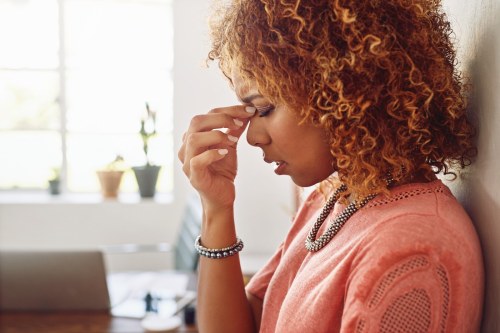Our editors independently select these products. Making a purchase through our links may earn Well+Good a commission
It’s no coincidence that America’s most-stressed city gets the least amount of sleep
Detroit was just named the most stressful city in America—and lack of sleep plays a major factor. Here's why the two are interconnected.

Let’s be honest: stress is a part of life. No matter your zip code, mental health maintenance is an ongoing project. But after an in-depth look at the headspaces of people across America, WalletHub has named Detroit, Michigan, as the winning (losing?) city in the United States of Stress. To boot, the city also received the lowest average amount of sleep per night. Coincidence? We—and researchers—think not.
First thing’s first, it’s important to note that the group of experts culled national data from 182 cities to reach this conclusion using 39 metrics that fell under the categories of stress, financial stress, family stress, and health and safety stress. The amount of adults who clocked an “inadequate” amount of sleep fell in the “health and safety” bucket. Folks living in Detroit slept about half as much on average as those Overland Park, Kansas (the city that slept the most, on average).
Detroit’s residents certainly aren’t alone. About 7 to 19 percent of Americans chronically miss out on sleep. And even though stress was just one of 39 metrics in the case of WalletHub’s study, The American Psychological Association reports that the two are inextricably intertwined. Twenty-one percent of American adults report feeling more stressed when they don’t log enough shut-eye, and 45 percent of adults feel even more stressed if they don’t get enough sleep. A lack of sleep also ripples out into other areas of a holistically healthy lifestyle. Surveys conducted by the APA found that participants who slept less than eight hours per night were more likely to feel overwhelmed, angry, impatient, and lethargic.
Twenty-one percent of American adults report feeling more stressed when they don’t log enough shut-eye, and 45 percent of adults feel even more stressed if they don’t get enough sleep.
Sometimes, counting all the sheep in the world won’t help, but The National Sleep Foundation says there are three key ways you can identify nighttime stress. Because, really, naming it is half the battle. A busy mind is the most obvious sign that your emotions are hijacking your time for rest, but tense muscles and a racing heart rate both indicate stress as well. Taking note of these warning signs before bed time will allow you to complete the relaxation method of your choice—be it a yoga nidra, a sleep hypnosis, or a steaming cup of chamomile tea paired with a good book.
Yet another undervalued tool for stomping out stress comes from Emily Nagoski, PhD, and Amelia Nagoski, DMA, sisters and co-authors of Burnout: The Secret to Unlocking the Stress Cycle. In an interview with NPR, the sisters named affection (namely, hugging) as an untapped way to stomp out stress. “Affection is really powerful. One of our favorite recommendations is the 20 second hug,” said Nagoski. “If you hold someone that long, it communicates to your body that you have a person in your life whom you love and trust enough and who loves and trusts you enough to stand this close together. And your chemistry shifts into a state of I have come home, which is the end of the stress response cycle.” So if you have a friend/pet/partner to wrap your arms around at the end of the day, don’t miss your opportunity for a squeeze.
As those living in Detroit have demonstrated, sleep and stress seem to have an inverse relationship. By doing our best to keep our stress levels in check, we open ourselves up to clocking way more zzz’s (and some more hugs, too).
Sleep FOMO is keeping a lot of people awake, too. So if you haven’t already learned the 4-7-8 technique for drifting off, stat, do so.
Sign Up for Our Daily Newsletter
Get all the latest in wellness, trends, food, fitness, beauty, and more delivered right to your inbox.
Got it, you've been added to our email list.










